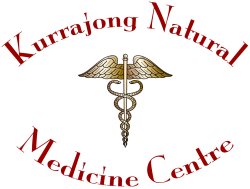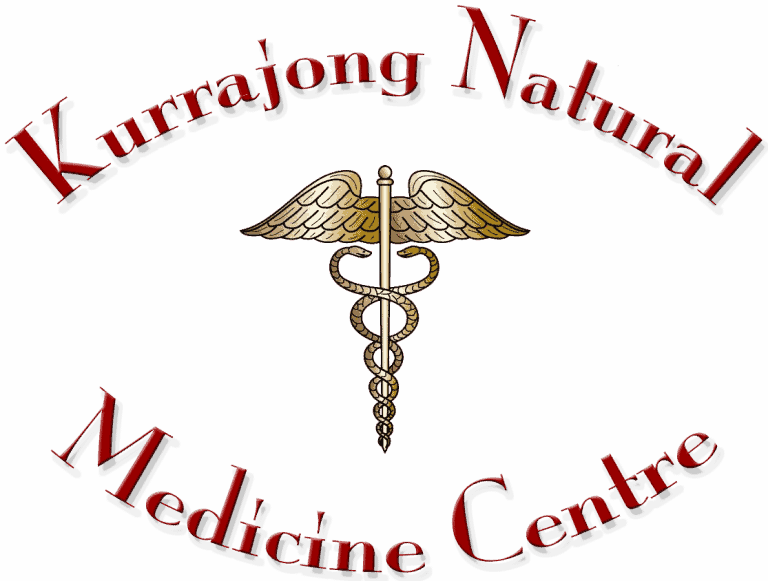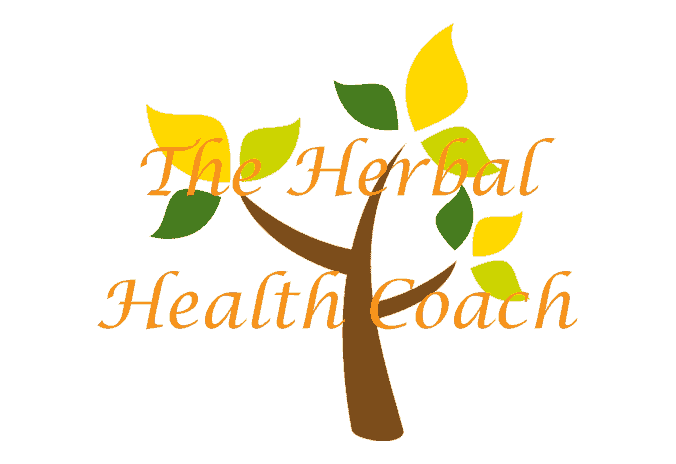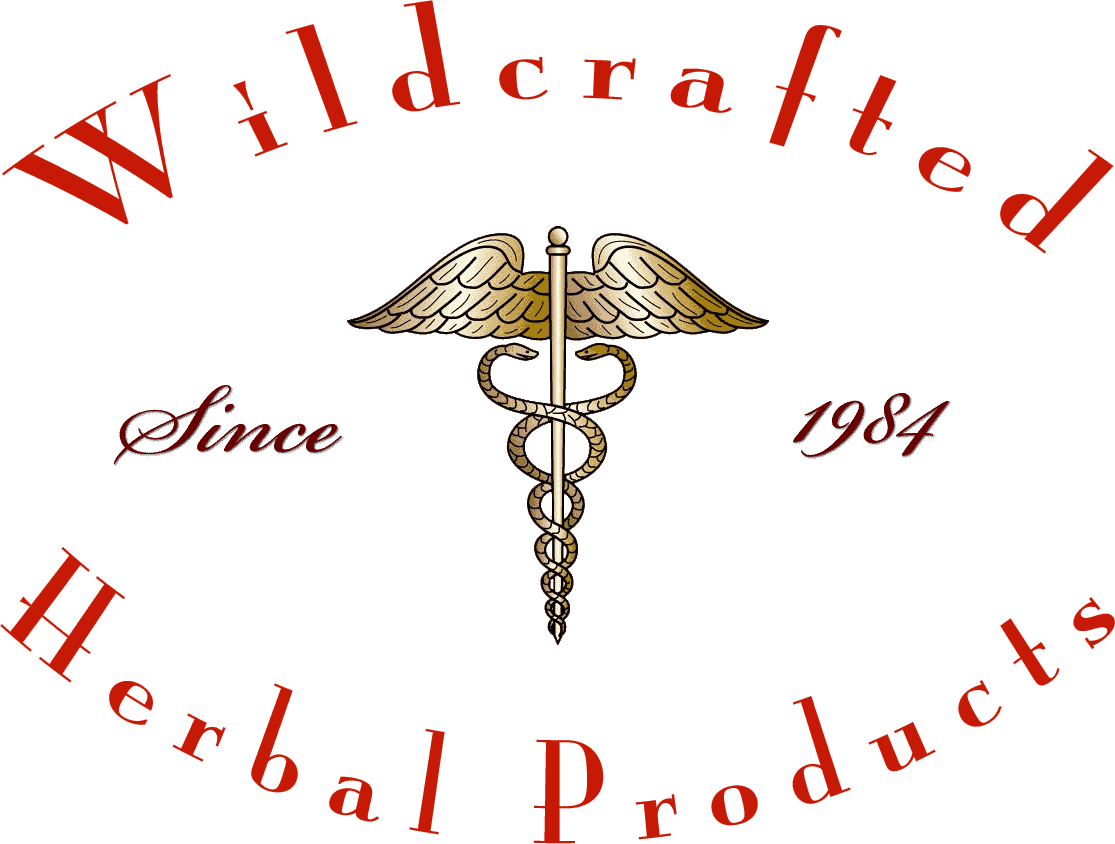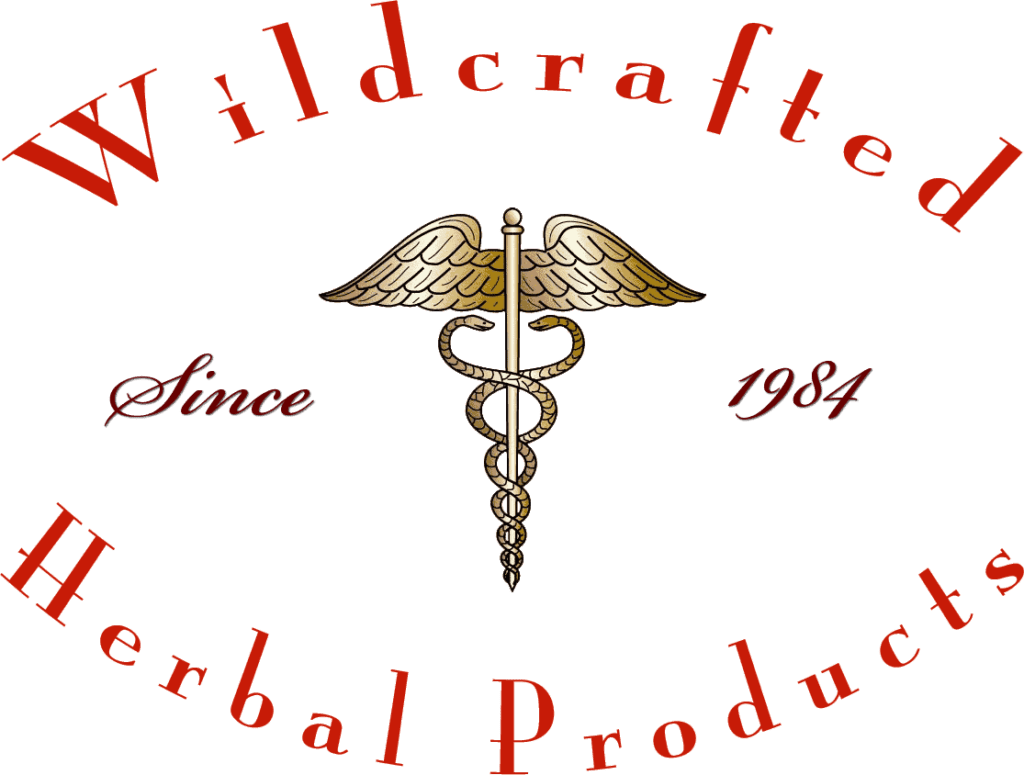The Health and Wellness Magazine - Spring 2023 Issue
Content of this issue of The Health and Wellness Magazine - Spring 2023
What's On & News
If you did not know already, our clinic is up and running again. We are however limiting the times and days on which we see patients to the Mornings of Wednesday, Thursday, Friday and Saturday – 9:30 am-12:30 pm (last appointment).
Introduction to Remedial Massage
Remedial massage is a therapeutic approach of massage therapy that aims to alleviate pain, discomfort, and muscle tension within the body. It is often used to address specific musculoskeletal issues, injuries, and chronic pain conditions. Remedial massage therapists are trained to assess and treat various soft tissue problems to promote healing and overall well-being.
Key principles of remedial massage:
Assessment and Individualisation: Before beginning any treatment, a qualified remedial massage therapist conducts a thorough assessment of the patient’s condition. This assessment involves discussing the patient’s medical history, performing physical assessments, and identifying areas of pain, tension, or dysfunction. This information provides the practitioner to tailor the treatment for their patient’s specific needs.
Soft Tissue Techniques: Remedial massage therapists use a variety of soft tissue techniques and passive movements to manipulate muscles, tendons, ligaments, and other connective tissues. These techniques may include deep tissue massage, myofascial release, trigger point therapy, and stretching. The goal is to release muscle tension, improve blood circulation, and promote healing.
Pain Management: Remedial massage is commonly sought by individuals experiencing pain due to injuries, postural imbalances, or chronic conditions. By targeting the source of the pain, practitioners aim to reduce discomfort, improve mobility, and enhance the body’s natural healing processes, ultimately reducing pain and discomfort.
Injury Rehabilitation: Remedial massage plays an important role in the rehabilitation of injuries, both acute and chronic. Through targeted techniques, therapists can help alleviate pain, improve tissue flexibility, and assist in the recovery process. This is often done in collaboration with other healthcare professionals like acupuncturists or chiropractors.
Postural Correction: Poor posture can contribute to various musculoskeletal problems, such as neck pain, back pain and even headaches. Remedial massage practitioners can identify postural imbalances and work on releasing tight muscles, ligaments, tendons and fascia, ultimately assisting patients in achieving better body alignment and reducing strain.
Stress Relief: While remedial massage primarily focuses on treating specific musculoskeletal issues, it also offers relaxation benefits. As muscles and tissues are relaxed, stress and anxiety can be reduced, leading to an improved overall sense of well-being.
Patient Education: An essential component of remedial massage is educating patients about their condition and providing them with self-care techniques. This may include advice on posture, stretching exercises, and lifestyle modifications to prevent future issues.
It’s important to note that remedial massage should only be performed by trained and certified practitioners. If you’re considering remedial massage for a specific health issue, make sure you choose a qualified therapist.
In many countries, remedial massage therapists are required to be registered or licensed, which helps ensure their competency and adherence to professional standards. Always seek treatment from a reputable practitioner to ensure you receive safe and effective care.
Call our Remedial massage therapist at Kurrajong Natural Medicine Centre to discuss your specific situation.
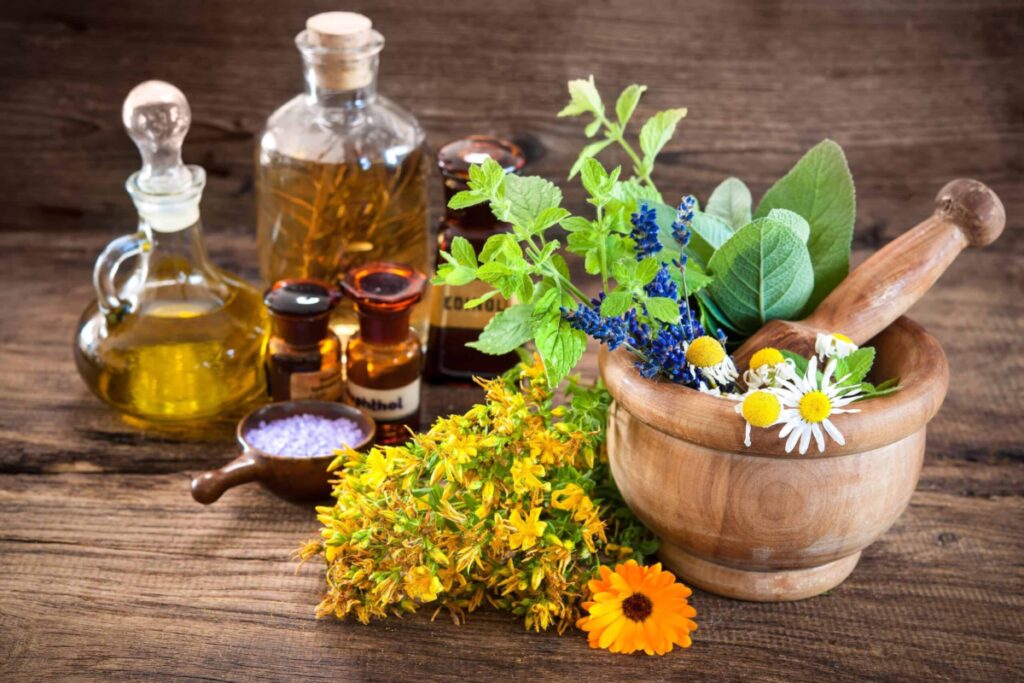
Remedial Massage and it's Secondary Effect on Stress
Stress relief is a significant and often overlooked aspect of remedial massage therapy. While the primary goal of remedial massage is to address specific musculoskeletal issues and promote physical healing, it also has profound effects on the mind and emotions. Below is a more detailed explanation of how remedial massage contributes to stress relief and an improved sense of overall well-being:
Physical Relaxation: Remedial massage techniques involve the manipulation of soft tissues, including muscles, tendons, and fascia. As these tissues are massaged and tension is released, this results in physical relaxation. Tight and knotted muscles can harbor stress and tension, and by targeting these areas, the body can experience a deep sense of relief and relaxation.
Release of Endorphins: Remedial massage triggers the release of endorphins, which are natural chemicals produced by the body that act as pain relievers and mood elevators. This release of endorphins during a massage can create feelings of pleasure and reduce stress and anxiety.
Reduction in Cortisol Levels: Chronic stress can lead to elevated levels of cortisol, a stress hormone, in the body. Remedial massage has been shown to reduce cortisol levels which can help the body shift from a “fight or flight” response to a more relaxed state, reducing overall stress levels.
Improved Circulation: Massage improves blood circulation, which can have a calming effect on the body. Enhanced circulation means that more oxygen and nutrients reach the body’s cells, while waste products are removed more efficiently. This improved circulation contributes to a sense of well-being and relaxation.
Enhanced Sleep Quality: Many individuals who experience high levels of stress also suffer from sleep disturbances. Remedial massage can improve sleep quality by promoting relaxation and reducing muscle tension. Better sleep contributes to overall stress reduction.
Mind-Body Connection: Massage therapy encourages a strong mind-body connection. As the body relaxes, the mind often follows suit. Clients may experience a sense of mental calm and clarity during and after a massage, which can help alleviate stress and anxiety.
Time for Self-Care: Scheduling a remedial massage session provides individuals with dedicated time for self-care. This act of self-care is essential for mental well-being, as it allows individuals to disconnect from their daily stressors and focus on their own physical and emotional needs.
Reduction in Muscle Pain: Chronic muscle pain can contribute to stress and anxiety. By alleviating muscle pain and tension through remedial massage, individuals often experience relief not only on a physical level but also on an emotional and psychological level.
Emotional Release: Sometimes, emotions can be stored in the body, especially in tense muscles. Remedial massage can facilitate the release of these pent-up emotions, providing emotional relief and a sense of catharsis.
In summary, while remedial massage is primarily known for its therapeutic benefits in addressing specific musculoskeletal issues, it offers a holistic approach to health and well-being. The relaxation benefits of remedial massage extend beyond the physical body, positively impacting mental and emotional health. Regular sessions with a skilled remedial massage therapist can be a valuable component of a comprehensive stress management and self-care routine.
4 Natural Approaches to Reducing Stress
Chinese and/or Western Herbal medicine, Acupuncture, Remedial massage therapy, relaxation & meditation are alternative and complementary approaches that have been shown to be effective in managing and relieving stress and anxiety.
Herbal Medicine:
Herbal medicine involves the use of plants and plant extracts to promote health and well-being. Certain herbs have been traditionally used to reduce stress and anxiety. Some commonly used herbs for this purpose include:
Chamomile: Known for its calming properties, chamomile can be consumed as a tea or taken in supplement form.
Valerian: Valerian root is often used as a natural remedy for anxiety and sleep disorders.
Lavender: Lavender essential oil is used in aromatherapy to promote relaxation and reduce anxiety.
Kava: Kava root is known for its anxiety-reducing effects and is often used in Pacific Island cultures.
As with any other form of treatment/therapy, make sure you consult a qualified herbalist before using herbal remedies, as they can interact with medications and may not be suitable for everyone.

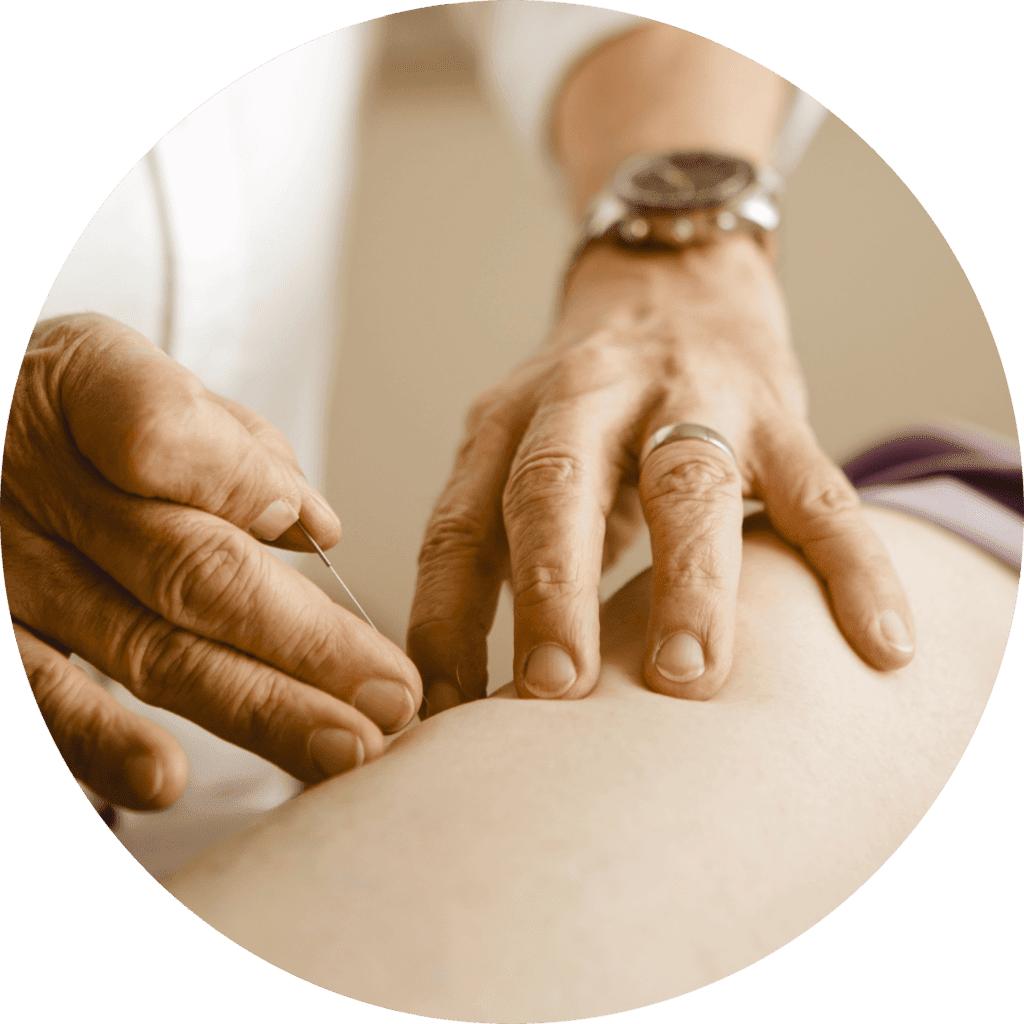
Acupuncture:
Acupuncture is an ancient Chinese practice that involves inserting thin needles into specific points on the body. It is balances the flow of energy or “qi” in the body and promote overall well-being. Studies show that acupuncture is effective in reducing stress and anxiety by:
Stimulating the release of endorphins, the body’s natural painkillers and mood elevators.
Regulating the autonomic nervous system, which plays a role in the body’s stress response.
Reducing muscle tension and promoting relaxation.
Acupuncture should be performed by a qualified and registered acupuncturist to ensure safety and effective treatment.
Massage Therapy:
Massage therapy involves the manipulation of soft tissues in the body, such as muscles and tendons, to promote relaxation and reduce muscle tension. The benefits of massage therapy for stress and anxiety management include:
Muscle Relaxation: Massage can help alleviate physical tension, which is often associated with stress and anxiety.
Improved Circulation: Massage can improve blood flow, which can have a calming effect on the body.
Stress Reduction: The relaxation response triggered by massage can help lower stress hormones like cortisol.
Different types of massage, such as Swedish massage or aromatherapy massage, can be tailored to an individual’s preferences and needs.
Relaxation & Meditation:
Relaxation and meditation techniques are highly effective tools for managing stress, and they offer a wide range of physical, mental, and emotional benefits. Here are some of the key advantages of using meditation and relaxation to cope with stress:
Reduction in Stress Levels: The primary goal of meditation and relaxation techniques is to reduce stress. These practices activate the body’s relaxation response, which counteracts the stress response, helping to lower stress hormone levels like cortisol.
Improved Mental Clarity: Meditation encourages mindfulness and present-moment awareness. It can help clear your mind, reduce mental clutter, and enhance your ability to focus and think clearly, which can be particularly helpful when dealing with stress-related brain fog.
Enhanced Emotional Regulation: Regular meditation can lead to improved emotional regulation. It can help you become more aware of your emotions, allowing you to respond to stressors in a calmer, more composed manner.
Better Sleep: Many relaxation techniques, such as progressive muscle relaxation and deep breathing exercises, promote better sleep. Improved sleep quality can significantly reduce stress and enhance overall well-being.
Lowered Blood Pressure: Meditation and relaxation can lead to a reduction in blood pressure, which is important for cardiovascular health. Lowering blood pressure can reduce the risk of heart disease, which is often associated with chronic stress.
Pain Management: Relaxation techniques can be effective in managing chronic pain conditions often exacerbated by stress. By promoting relaxation and reducing muscle tension, these practices can alleviate pain and discomfort.
Enhanced Immune Function: Chronic stress can weaken the immune system, making you more susceptible to illness. Meditation and relaxation can help support immune function by reducing stress-induced inflammation and enhancing immune response.
Increased Self-Awareness: Through meditation, you gain a deeper understanding of yourself, your thought patterns, and your reactions to stress. This self-awareness can empower you to make healthier choices and reduce stress triggers in your life.
Stress Prevention: Regular practice of meditation and relaxation can serve as a preventative measure against chronic stress. By incorporating these techniques into your daily routine, you can build resilience and better cope with stressors when they arise.
Enhanced Overall Well-Being: Ultimately, meditation and relaxation contribute to a sense of overall well-being. They promote a sense of calm, inner peace, and balance, which can lead to a happier and more fulfilling life.
Reduced Anxiety and Depression: Meditation has been shown to be effective in reducing symptoms of anxiety and depression. It can help individuals manage the emotional challenges that often accompany chronic stress.
Improved Relationships: Reduced stress and increased emotional regulation can lead to improved relationships with others. When you’re less stressed and more in control of your emotions, you’re better equipped to communicate effectively and build stronger connections.
It’s important to note that the benefits of meditation and relaxation are often cumulative, meaning that regular and consistent practice tends to yield the best results. Additionally, there are many different forms of meditation and relaxation techniques, so it’s advisable to explore and find the approaches that resonate most with you. Integrating these practices into your daily routine can be a powerful way to manage stress and enhance your overall quality of life.
Turmeric, The Golden Spice
Introduction
Turmeric, the vibrant golden spice derived from the rhizomes of the Curcuma longa plant, has been revered for its culinary and medicinal properties for centuries. Widely used in Indian and Asian cuisines, this remarkable herb has also gained recognition worldwide for its numerous health benefits.
Beyond its aromatic and flavour-enhancing qualities, turmeric boasts a rich history of therapeutic use, supported by a growing body of scientific research. In this article, we delve into the multifaceted health benefits of turmeric, highlighting its therapeutic actions and its potential to promote overall health and well-being.
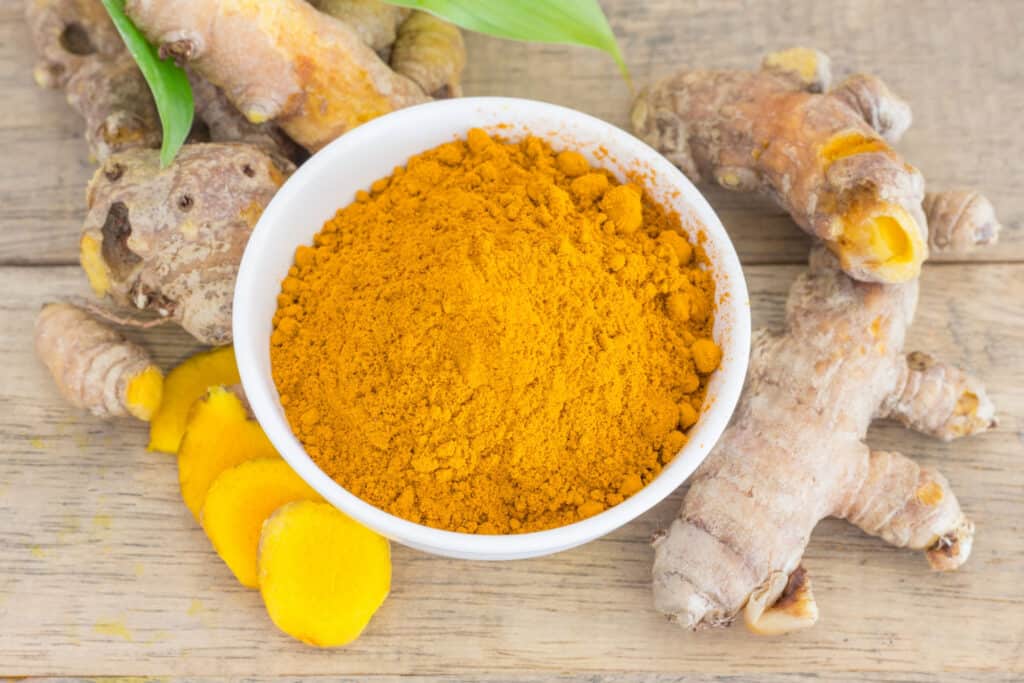
Turmeric’s Therapeutic Actions
Turmeric owes its therapeutic prowess to its active compound, curcumin. Curcumin is a polyphenol with powerful anti-inflammatory, antioxidant, antimicrobial and anti-cancer properties. While curcumin is the most studied component of turmeric, the spice also contains other beneficial compounds, such as turmerones and curcuminoids, which contribute to its healing properties.
- Anti-Inflammatory Effects
Chronic inflammation is the root cause of many diseases, including heart disease, cancer, and neurodegenerative conditions. Curcumin has garnered attention for its potent anti-inflammatory properties. It works by inhibiting the activity of inflammatory enzymes and reducing the production of inflammatory cytokines. This ability to modulate the inflammatory response makes turmeric a valuable ally in combating various inflammatory disorders.
- Antioxidant Activity
Oxidative stress, characterised by an imbalance between free radicals and antioxidants in the body, plays a pivotal role in the aging process and the development of chronic diseases. Curcumin acts as a powerful antioxidant, scavenging free radicals and neutralising their harmful effects. By reducing oxidative stress, turmeric helps protect cells from damage and supports overall health.
- Pain Management
Turmeric has traditionally been used as a natural pain reliever. Its anti-inflammatory properties make it effective in alleviating pain associated with conditions like arthritis, muscle sprains, and joint injuries. Some studies suggest that turmeric’s pain-relieving effects are comparable to over-the-counter medications, without the potential side effects.
- Immune System Support
The immune system is the body’s defense against infections and illnesses. Turmeric has been shown to enhance the immune response by stimulating the activity of immune cells. This can help the body better fight off infections and may contribute to a reduced risk of illness.
- Digestive Health
In traditional herbal medicine, turmeric has been used to aid digestion and alleviate digestive disorders. It stimulates bile production, which aids in the digestion of fats. Additionally, its anti-inflammatory properties can help soothe the digestive tract and alleviate symptoms of conditions like irritable bowel syndrome (IBS) and indigestion.
- Brain Health
Curcumin has shown promise in supporting brain health and cognitive function. It may help protect against neurodegenerative diseases like Alzheimer’s by reducing inflammation, clearing amyloid plaques, and promoting the growth of new brain cells. Some research suggests that regular consumption of turmeric could help maintain cognitive function as individuals age.
- Heart Health
Heart disease is the leading cause of death worldwide, and inflammation and oxidative stress are key factors in its development. Turmeric may contribute to heart health by improving blood vessel function, reducing cholesterol levels, and lowering blood pressure. These effects can help reduce the risk of heart disease and improve overall cardiovascular well-being.
- Cancer Prevention and Treatment
Many studies have shown that curcumin has anti-cancer properties. It can inhibit the growth and spread of cancer cells, induce apoptosis (cell death) in cancer cells, and inhibit the formation of new blood vessels in tumors. However, it’s important to note that turmeric should not be considered a standalone treatment for cancer, but rather a potential complementary therapy.
- Anti-Arthritic Effects
Arthritis is a common condition characterised by joint inflammation and pain. Turmeric’s anti-inflammatory properties can be particularly beneficial for individuals with arthritis. Some studies have found that turmeric supplementation can reduce symptoms of osteoarthritis and rheumatoid arthritis, improving joint function and reducing pain.
- Skin Health
Topical application of turmeric, in the form of turmeric paste or creams, is known to improve various skin conditions. Its anti-inflammatory and antioxidant properties make it effective in treating acne, psoriasis, and eczema. In addition, it can promote wound healing and reduce the appearance of scars.
Health Benefits of Turmeric: A Closer Look
Now that we’ve explored the various therapeutic actions of turmeric, let’s take a look at its specific health benefits.
- Turmeric and Inflammatory Disorders
One of the most well-established benefits of turmeric is its ability to combat chronic inflammation. Chronic inflammation is at the core of many diseases, including cardiovascular disease, diabetes, cancer, and autoimmune conditions. Curcumin, as the primary anti-inflammatory compound in turmeric, exerts its effects by inhibiting the activity of nuclear factor-kappa B (NF-κB), a key player in the inflammatory response. By doing so, it reduces the expression of pro-inflammatory genes and mitigates inflammation throughout the body.
Studies have shown promising results in conditions such as rheumatoid arthritis, where turmeric supplementation led to significant reductions in symptoms like joint pain and stiffness. Similarly, individuals with inflammatory bowel disease (IBD) have reported improvements in symptoms with turmeric supplementation. While turmeric alone may not replace conventional treatments for these conditions, it can be a valuable complementary approach to managing inflammation and reducing the need for high doses of pharmaceutical medications.
- Turmeric and Antioxidant Defense
Turmeric’s antioxidant properties play a vital role in protecting cells and tissues from oxidative damage. Oxidative stress, caused by an excess of free radicals in the body, can lead to cellular dysfunction and accelerate ageing. Moreover, it is a contributing factor in various chronic diseases, including cancer, cardiovascular disease, and neurodegenerative disorders.
Curcumin acts as a potent antioxidant by neutralising free radicals and boosting the activity of the body’s own antioxidant enzymes. This dual action helps to maintain the delicate balance between free radicals and antioxidants, preventing oxidative stress from wreaking havoc on the body.
- Turmeric and Joint Health
Arthritis, characterised by inflammation and pain in the joints, affects millions of people worldwide. Turmeric’s anti-inflammatory and analgesic properties make it a promising natural remedy for arthritis management. Research has shown that curcumin can reduce the symptoms of osteoarthritis and rheumatoid arthritis, two common forms of arthritis.
In osteoarthritis, curcumin has been found to suppress the production of inflammatory cytokines and enzymes that degrade joint cartilage. This helps preserve joint function and reduce pain. In rheumatoid arthritis, curcumin’s ability to modulate the immune response is particularly relevant. It can help alleviate joint inflammation and slow down the progression of the disease.
- Turmeric and Heart Health
Cardiovascular disease is a leading cause of death worldwide. Turmeric’s potential benefits for heart health stem from its ability to improve several key risk factors. For instance:
Cholesterol Reduction: High levels of LDL (low-density lipoprotein) cholesterol are a significant risk factor for heart disease. Curcumin has been shown to reduce LDL cholesterol levels, helping to lower the risk of atherosclerosis and heart attacks.
Blood Pressure Regulation: High blood pressure (hypertension) is another risk factor for heart disease. Some studies suggest that curcumin can help relax blood vessels and reduce blood pressure, contributing to better heart health.
Anti-Platelet Effects: Curcumin’s anti-platelet activity can help prevent the formation of blood clots, which can lead to heart attacks and strokes.
Anti-Inflammatory Properties: Chronic inflammation is closely linked to cardiovascular disease. By reducing inflammation, curcumin may help protect the heart and blood vessels.
Improved Endothelial Function: Curcumin may improve the function of the endothelium, the lining of blood vessels. Dysfunction of the endothelium is an early indicator of heart disease.
While turmeric can be a valuable addition to a heart-healthy diet and lifestyle, it should not replace prescribed medications or medical advice for individuals with established heart conditions. Instead, it can complement conventional treatments and contribute to overall cardiovascular well-being.
- Turmeric and Brain Health
The brain is one of the body’s most vital organs, and its health is closely linked to overall well-being. Curcumin’s potential to support brain health has garnered significant interest from researchers. Here are some ways in which turmeric may benefit the brain:
Alzheimer’s Disease: Alzheimer’s disease is characterised by the accumulation of beta-amyloid plaques and neurofibrillary tangles in the brain, along with chronic inflammation. Curcumin has been shown to reduce the build-up of these abnormal proteins and decrease inflammation, potentially slowing the progression of Alzheimer’s.
Depression and Anxiety: Some studies suggest that curcumin may have antidepressant and anxiolytic (anxiety-reducing) effects. It may increase the levels of neurotransmitters like serotonin and dopamine, which play a role in mood regulation.
Neurogenesis: Curcumin has been found to promote the growth of new neurons in the brain, a process known as neurogenesis. This could have implications for improving cognitive function and maintaining brain health as we age.
Neuroprotection: Curcumin’s antioxidant and anti-inflammatory properties may protect brain cells from damage caused by oxidative stress and inflammation, reducing the risk of neurodegenerative diseases.
While these findings are promising, more research is needed to fully understand the potential of turmeric in maintaining cognitive function and preventing brain-related disorders.
- Turmeric and Cancer Prevention
Cancer is a complex group of diseases characterised by the uncontrolled growth and spread of abnormal cells. While research into curcumin’s anti-cancer properties is ongoing, several mechanisms suggest its potential as a cancer-fighting agent:
Anti-Proliferative Effects: Curcumin can inhibit the growth of cancer cells by disrupting cell division and inducing cell death (apoptosis).
Anti-Angiogenic Effects: Curcumin can prevent the formation of new blood vessels in tumours, starving them of the nutrients they need to grow.
Anti-Metastatic Effects: Curcumin may inhibit the spread of cancer cells to other parts of the body by interfering with cellular signaling pathways involved in metastasis.
Enhanced Chemo and Radiotherapy: Some studies indicate that curcumin can enhance the effectiveness of chemotherapy and radiation therapy while reducing their side effects.
Protection Against DNA Damage: Curcumin’s antioxidant properties may protect DNA from damage caused by free radicals, reducing the risk of mutations that can lead to cancer.
It’s important to note that while turmeric and curcumin show promise as potential cancer preventatives and adjunct therapies, they should not be used as a substitute for conventional cancer treatment. Anyone with a cancer diagnosis should consult with a healthcare professional to develop a comprehensive treatment plan.
- Turmeric and Digestive Health
Turmeric has been used for centuries to support digestive health. Its ability to stimulate bile production can aid in the digestion of fats and improve overall digestive function. Additionally, its anti-inflammatory properties may help soothe the digestive tract and alleviate symptoms of gastrointestinal disorders.
Irritable Bowel Syndrome (IBS): Some individuals with IBS report symptom relief with turmeric supplementation. Curcumin’s anti-inflammatory effects may help reduce abdominal pain and discomfort associated with IBS.
Indigestion: Turmeric has traditionally been used as a remedy for indigestion. It can help alleviate symptoms like bloating and gas by promoting healthy digestion.
Gastric Ulcers: Curcumin’s anti-inflammatory and antioxidant properties may help protect the stomach lining from damage and support the healing of gastric ulcers.
Inflammatory Bowel Disease (IBD): While more research is needed, early studies suggest that turmeric may have a role in managing the symptoms of Crohn’s disease and ulcerative colitis, two forms of IBD.
- Turmeric and Immune Support
A robust immune system is essential for protecting the body against infections and illnesses. Turmeric may support immune function through several mechanisms:
Immune Cell Activation: Curcumin has been shown to stimulate the activity of immune cells, such as T cells and B cells, which play a crucial role in the immune response.
Anti-Microbial Properties: Turmeric’s antimicrobial properties may help fend off infections and reduce the severity of symptoms when illness strikes.
Anti-Viral Effects: Some studies suggest that curcumin can inhibit the replication of certain viruses, thus potentially reducing the risk of viral infections.
Anti-Allergic Effects: Curcumin’s anti-inflammatory properties may help alleviate allergy symptoms by reducing the release of histamines and other inflammatory compounds.
Autoimmune Conditions: While more research is needed, curcumin’s immune-modulating effects may be beneficial for individuals with autoimmune conditions by helping to regulate the immune response.
- Turmeric and Skin Health
The benefits of turmeric aren’t limited to internal health; they extend to the skin as well. Here’s how turmeric can promote healthy skin:
Acne Treatment: Turmeric’s anti-inflammatory and antibacterial properties make it effective in treating acne. It can help reduce redness and inflammation while preventing the growth of acne-causing bacteria.
Psoriasis Management: Some individuals with psoriasis find relief from applying turmeric topically. Curcumin’s anti-inflammatory properties can help soothe psoriasis plaques and reduce itching.
Eczema Relief: Turmeric may alleviate symptoms of eczema, such as itching and redness. Its anti-inflammatory effects can help calm irritated skin.
Wound Healing: Turmeric has been used for centuries to aid in wound healing. Its antimicrobial properties can help prevent infection, while its anti-inflammatory effects may reduce swelling.
Scar Reduction: Topical application of turmeric may help reduce the appearance of scars by promoting collagen production and tissue repair.
To use turmeric for skin health, it can be mixed with other natural ingredients to create soothing creams, masks and therapeutic treatments. However, individuals with sensitive skin should perform a patch test before applying turmeric topically, as it may cause irritation in some cases.
- Turmeric and Weight Management
Maintaining a healthy weight is essential for overall well-being. While turmeric is not a magic weight-loss solution, it may offer support in weight management through various mechanisms:
Metabolic Support: Curcumin has been shown to enhance metabolism by increasing the production of adiponectin, a hormone that helps regulate metabolism and blood sugar levels.
Appetite Control: Some studies suggest that curcumin can help control appetite and reduce food cravings, which can be beneficial for individuals trying to manage their weight.
Anti-Inflammatory Effects: Chronic inflammation is linked to obesity. By reducing inflammation, curcumin may contribute to weight loss and improved metabolic health.
Liver Health: Curcumin supports liver function, which is crucial for fat metabolism and detoxification. A healthy liver is essential for maintaining a healthy weight.
It’s important to emphasize that turmeric alone is not a weight-loss miracle. It should be incorporated into a balanced diet and active lifestyle to achieve and maintain a healthy weight.
Conclusion
Turmeric, often referred to as “the golden spice,” has earned its place as a revered herb in traditional medicine and a subject of extensive scientific research. One of its active compounds, curcumin, possesses a wide range of therapeutic actions, making it a valuable ally in promoting overall health and well-being.
From its potent anti-inflammatory and antioxidant properties to its potential in managing conditions like arthritis, heart disease, and even cancer, turmeric’s benefits are far-reaching. Additionally, its positive impact on brain health, digestive function, and immune support further solidify its status as a versatile and holistic health-enhancing spice.
While incorporating turmeric into your diet can offer numerous advantages, it’s important to do so as part of a balanced and varied diet. For individuals with specific health concerns or conditions, it’s advisable to consult with a qualified herbalist before starting any supplementation or treatment regimen involving turmeric or curcumin.
As research continues to uncover the depth of turmeric’s health benefits, it’s clear that this golden spice holds immense potential in enhancing and supporting our journey toward better health and vitality. Whether enjoyed in a delicious curry or taken as a dietary supplement, turmeric is a shining example of nature’s ability to provide both culinary delight and profound well-being.
The Therapeutic Power of Swimming and Exercise: Alleviating Stress and Boosting Health
In today’s fast-paced world, stress has become an unavoidable part of our lives. The demands of work, family, and the constant stream of information from our digital devices can leave us feeling overwhelmed and anxious. However, there is a powerful antidote to the stressors of modern life: physical exercise. Among the various forms of exercise, swimming stands out as a particularly effective stress-buster, offering a myriad of health benefits that extend beyond the physical. In this article, we will explore the health benefits of swimming and other forms of exercise, with a special focus on their positive effects on stress reduction.
The Physiology of Stress
Before delving into the benefits of swimming and exercise, it’s important to understand the physiology of stress. When the body encounters a stressor, whether it’s a looming deadline at work or a sudden traffic jam, it triggers a “fight or flight” response. The sympathetic nervous system springs into action by releasing stress hormones such as cortisol and adrenaline. These hormones prepare the body for action, increasing heart rate, blood pressure, and alertness.
While this response is essential in situations where immediate action is required, chronic stress can have detrimental effects on both mental and physical health. Prolonged exposure to stress hormones can lead to anxiety, depression, high blood pressure, heart disease, and a weakened immune system. Therefore, finding effective ways to manage stress is crucial for maintaining overall well-being.

The Role of Exercise in Stress Reduction
Exercise is a natural stress reliever, as it offers multiple mechanisms to counteract the negative effects of stress. Here are some key ways in which physical activity helps alleviate stress:
Release of Endorphins: Exercise triggers the release of endorphins, often referred to as “feel-good” hormones. These chemicals interact with receptors in the brain, reducing the perception of pain and promoting a positive mood. The resulting feeling of well-being can counteract the negative emotions associated with stress.
Reduction in Stress Hormones: Regular exercise helps regulate the levels of stress hormones in the body. It lowers cortisol and adrenaline, preventing them from reaching chronically elevated levels, which are harmful to health.
Improved Sleep: Stress often leads to sleep disturbances, creating a vicious cycle where lack of sleep exacerbates stress. Exercise can help break this cycle by promoting better sleep quality. A well-rested body is better equipped to handle stress.
Enhanced Cognitive Function: Exercise has been shown to improve cognitive function, including memory and problem-solving abilities. This can help individuals manage stress more effectively by enabling them to find solutions to stressors.
Emotional Regulation: Engaging in physical activity can provide a healthy outlet for the emotional turmoil that often accompanies stress. It offers a way to channel and release pent-up emotions in a constructive manner.
Swimming: A Stress-Relieving Oasis
Swimming, in particular, offers unique advantages when it comes to stress reduction. Here’s why:
Buoyancy and Weightlessness: The sensation of floating in water creates a feeling of weightlessness that is soothing and stress-relieving. This buoyancy reduces the impact on joints and muscles, making swimming an accessible exercise for people of various fitness levels.
Deep Breathing: Swimming encourages deep, rhythmic breathing. Focusing on your breath while swimming can have a meditative effect, calming the mind and reducing stress.
Low Impact Exercise: Swimming is a low-impact exercise that is gentle on the joints. This makes it an ideal choice for individuals with joint problems or injuries, allowing them to engage in physical activity without exacerbating their condition.
Full-Body Workout: Swimming engages multiple muscle groups simultaneously, providing a full-body workout. This not only contributes to physical fitness but also helps in releasing tension held in different parts of the body.
Temperature Regulation: The sensation of water on the skin can help regulate body temperature. This can be especially beneficial for individuals who are prone to overheating when exercising.
Social Interaction: Swimming can be a social activity, offering the opportunity to connect with others in a relaxed and supportive environment. Social support is known to be a key factor in stress reduction.
Other Forms of Exercise and Stress Reduction
While swimming has its unique advantages, various other forms of exercise are also effective in reducing stress. Here are some popular options:
Running: Running or jogging is a high-intensity exercise that can provide an immediate release of stress and tension. The rhythmic motion of running and the sense of accomplishment after a good run can be highly therapeutic.
Yoga: Yoga combines physical postures, breath control, and meditation. It is renowned for its stress-reducing benefits, as it not only promotes physical fitness but also enhances mindfulness and relaxation.
Cycling: Cycling, whether outdoors or on a stationary bike, is an excellent cardiovascular exercise that can help clear the mind and reduce stress. The sense of freedom that comes with cycling in the open air adds to its appeal.
Strength Training: Resistance training, such as weightlifting, can be a powerful stress reducer. It builds physical strength and confidence, which can help individuals feel more in control of their lives.
Dance: Dancing is a fun way to exercise while expressing oneself creatively. It combines physical movement with music, creating a joyful experience that can alleviate stress and improve mood.
Tai Chi: This ancient Chinese practice combines slow, flowing movements with deep breathing and meditation. It is known for its calming effect on the mind and body.
Creating a Stress-Relief Exercise Routine
To harness the stress-relieving benefits of exercise, it’s important to establish a consistent routine. Here are some tips for creating an effective stress-relief exercise plan:
Set Realistic Goals: Start with achievable exercise goals that fit your current fitness level. Gradually increase intensity and duration as your fitness improves.
Find Enjoyment: Choose an exercise that you genuinely enjoy. Whether it’s swimming, running, or dancing, if you look forward to it, you’re more likely to stick with it.
Mix It Up: Variety can prevent exercise from becoming monotonous. Incorporate different types of exercise into your routine to keep things interesting.
Consistency is Key: Aim for regularity in your exercise schedule. Even short, frequent sessions can be effective in reducing stress.
Mindful Movement: Pay attention to your body while exercising. Focus on your breath, movements, and sensations to cultivate mindfulness, which enhances the stress-relief benefits.
Seek Social Support: Consider joining group classes or exercising with a friend. The social aspect can boost motivation and provide emotional support.
Consult a Professional: If you have specific health concerns or are new to exercise, it’s advisable to consult a healthcare professional or fitness expert for guidance.
Conclusion
In a world filled with stressors, exercise, especially swimming, emerges as a potent tool for promoting mental and physical well-being. Its ability to release endorphins, reduce stress hormones, improve sleep, and enhance cognitive function makes exercise a holistic approach to stress management. Whether you prefer the tranquility of the pool or the exhilaration of a run, finding an exercise routine that suits your lifestyle and preferences is a vital step towards a healthier, stress-free life. By incorporating regular exercise into your daily routine, you can unlock the numerous benefits it offers and build resilience against the challenges of modern life.
Common Skin Issues and How To Fix Them Naturally
Our skin is a remarkable organ that serves as a protective barrier between our body and the external environment. However, it can face a multitude of issues due to various factors, including genetics, lifestyle choices, and environmental factors.
Many skin problems can be addressed naturally, but it’s essential to remember that individual responses can vary, and severe conditions may require professional medical intervention.
Here are some common skin issues and natural remedies that may help alleviate them:
Acne:
- Natural Fix: Tea tree oil has natural antibacterial properties that can help reduce acne. Dilute it with a carrier oil and apply it to affected areas. Aloe vera gel also has soothing and anti-inflammatory properties.
- Dietary Change: Reducing dairy and sugary foods while increasing your intake of fruits and vegetables can help manage acne.
Dry Skin:
- Natural Fix: Coconut oil is a great natural moisturizer. Apply it to dry areas of your skin. Honey and yogurt masks can also hydrate the skin.
- Hydration: Drink plenty of water to keep your skin hydrated from the inside.
Eczema:
- Natural Fix: Apply aloe vera gel or chamomile-infused oil to soothe irritated skin. Oatmeal baths can also provide relief.
- Avoid Triggers: Identify and avoid triggers such as certain soaps, detergents, or foods that exacerbate your eczema.
Sunburn:
- Natural Fix: Apply cool compresses, aloe vera gel, or yogurt to relieve sunburn. Oatmeal baths can also help.
- Prevention: Use sunscreen with at least SPF 30 and wear protective clothing when in the sun.
Wrinkles:
- Natural Fix: Vitamin C serums or a paste made from mashed avocado and honey can help reduce the appearance of wrinkles.
- Lifestyle Choices: Avoid smoking and limit alcohol consumption. Get enough sleep and maintain a healthy diet rich in antioxidant.
Dark Circles:
- Natural Fix: Apply cold cucumber slices, green tea bags, or potato slices to reduce puffiness and dark circles.
- Adequate Sleep: Ensure you get enough sleep, as lack of sleep can contribute to dark circles.
Psoriasis:
- Natural Fix: Apply coconut oil or aloe vera gel to soothe psoriasis plaques. Dead Sea salt baths can also help.
- Stress Management: Stress can exacerbate psoriasis, so engage in stress-reducing activities like yoga or meditation.
Rosacea:
- Natural Fix: Green tea compresses or masks can help reduce redness and inflammation associated with rosacea.
- Avoid Triggers: Identify and avoid triggers like spicy foods or alcohol.
Scars:
- Natural Fix: Apply vitamin E oil or a mixture of honey and lemon juice to fading scars. Aloe vera can also help with scar healing.
- Time: Many scars will naturally fade over time. Be patient and protect them from the sun.
It’s essential to remember that while natural remedies can be effective for many skin issues, it’s crucial to monitor your skin’s response and consult your healthcare provider if a problem persists, worsens, or if you have concerns about a more serious condition. Additionally, always do a patch test before applying any new natural remedy to ensure you don’t have an adverse reaction. Overall, a combination of good skincare practices, a healthy diet, and stress management can contribute to the long-term health and appearance of your skin.
Did You Know?
Did You Know?
Did you know in a deck of cards the king of hearts is the only king without a moustache
Did you know Monopoly is the most played board game in the world
Did you know the opposite sides of a die always adds up to 7
Did you know the original design of Monopoly was circular
Did you know draughts (checkers) is older than chess
Did you know a Chinese checkerboard has 121 holes
Did you know a deck of cards should be shuffled at least 7 times before playing
Did You Know?
Did you know everyday, more money is printed for Monopoly sets than for the U.S. Treasury
Did you know the dollar values on the board game Monopoly have been the same since 1935
Did you know the makers of the board game Monopoly print over 50 billion dollars worth of Monopoly money every year
Did you know the first crossword puzzle appeared in 1913
Did you know some playing cards in India are round
Did you know the game of Tug-of-war was an Olympic sport from 1900-1920
Did you know Nintendo first produced playing cards
We hope you enjoyed this issue of The Health and Wellness Magazine. We are always open to constructive feedback and ideas for future articles. If you have a particular topic you would like us to cover relating to yoga, alternative medicine, meditation, etc., please let us know and we will include it in an up coming Magazine
Namaste.
Disclaimer
Disclaimer information for users of the Kurrajong Natural Medicine Centre, Namaste Yoga Kurrajong and The Herbal Health Coach website.
Page last updated: 26th June 2023
Information provided for education and research information only
The information on this website is presented by Kurrajong Natural Medicine Centre for the purpose of disseminating health information free of charge for the benefit of the public.
While Kurrajong Natural Medicine Centre has exercised due care in ensuring the accuracy of the material contained on this website, the information on the site is made available on the basis that Kurrajong Natural Medicine Centre is not providing professional advice on a particular matter.
This website is not a substitute for independent professional advice. Nothing contained in this site is intended to be used as medical advice and it is not intended to be used to diagnose, treat, cure or prevent any disease, nor should it be used for therapeutic purposes or as a substitute for your own health professional’s advice.
Kurrajong Natural Medicine Centre does not accept any liability for any injury, loss or damage incurred by use of or reliance on the information provided on this website.
Quality of information
Kurrajong Natural Medicine Centre makes every effort to ensure the quality of the information available on this website and updates the information regularly. Before relying on the information on this site, however, users should carefully evaluate its accuracy, currency, completeness and relevance for their purposes, and should obtain any appropriate professional advice relevant to their particular circumstances. Kurrajong Natural Medicine Centre cannot guarantee and assumes no legal liability or responsibility for the accuracy, currency, completeness or interpretation of the information.
The material may include the views or recommendations of third parties and does not necessarily reflect the views of Kurrajong Natural Medicine Centre or indicate a commitment to a particular course of action.
Links to other websites
This website contains links to other websites which are external to Kurrajong Natural Medicine Centre. Kurrajong Natural Medicine Centre takes reasonable care in selecting linking websites but Kurrajong Natural Medicine Centre accepts no responsibility for material contained in a website that is linked to this site. It is the responsibility of the user to make their own decisions about the accuracy, currency, reliability and correctness of information contained in linked external websites.
Links to external websites are provided for the user’s convenience and do not constitute an endorsement or a recommendation of any third party products or services offered by virtue of any information, material or content linked from or to this site. Users of links provided by this site are responsible for being aware of which organisation is hosting the site they visit.
Views or recommendations provided in linked sites may include the views or recommendations of third parties and do not necessarily reflect those of Kurrajong Natural Medicine Centre or indicate a commitment to a particular course of action.
